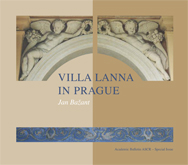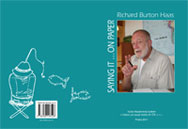Hydrogen powers important nitrogen-transforming bacteria
1 Sep 2014
 Nitrite-oxidizing bacteria are key players in the natural nitrogen cycle on Earth and in biological wastewater treatment plants. For decades, these specialist bacteria were thought to depend on nitrite as their source of energy. An international team of scientists led by Holger Daims, a microbiologist at the University of Vienna, has now shown that nitrite-oxidizing bacteria can use hydrogen as an alternative source of energy. The oxidation of hydrogen with oxygen enables their growth independent of nitrite and a lifestyle outside the nitrogen cycle. The study is published in the current issue of the journal "Science".
Nitrite-oxidizing bacteria are key players in the natural nitrogen cycle on Earth and in biological wastewater treatment plants. For decades, these specialist bacteria were thought to depend on nitrite as their source of energy. An international team of scientists led by Holger Daims, a microbiologist at the University of Vienna, has now shown that nitrite-oxidizing bacteria can use hydrogen as an alternative source of energy. The oxidation of hydrogen with oxygen enables their growth independent of nitrite and a lifestyle outside the nitrogen cycle. The study is published in the current issue of the journal "Science".
Bolzano in Prague 2014
8 Aug 2014
 International symposium (16th – 19th July, Villa Lanna) brought together 35 participants from 13 countries to hear and discuss presentations on the life and work of one of the foremost European philosophers of the nineteenth century, Bernard Bolzano. Most of the 30 talks given were on philosophy but mathematics and theology were also well represented. More than a quarter of the participants were research students. Several news items drew attention to recent developments in Bolzano studies – in May we saw the complete English translation of Bolzano’s major work Wissenschaftslehre (Theory of Science). This year has seen almost three-quarters of the129 volumes of the Bernard Bolzano Gesamtausgabe appearing in print. The programme and other details of the meeting can be found at bolzano2014.wordpress.com. The meeting enjoyed generous sponsorship, participants were enthusiastic in their appreciation of it, and details of how presentations and papers will be disseminated will appear in due course.
International symposium (16th – 19th July, Villa Lanna) brought together 35 participants from 13 countries to hear and discuss presentations on the life and work of one of the foremost European philosophers of the nineteenth century, Bernard Bolzano. Most of the 30 talks given were on philosophy but mathematics and theology were also well represented. More than a quarter of the participants were research students. Several news items drew attention to recent developments in Bolzano studies – in May we saw the complete English translation of Bolzano’s major work Wissenschaftslehre (Theory of Science). This year has seen almost three-quarters of the129 volumes of the Bernard Bolzano Gesamtausgabe appearing in print. The programme and other details of the meeting can be found at bolzano2014.wordpress.com. The meeting enjoyed generous sponsorship, participants were enthusiastic in their appreciation of it, and details of how presentations and papers will be disseminated will appear in due course.
Professor Olga Hudlická passed away
6 Jun 2014
 It is with deep sadness we inform you of the sudden passing of Professor Olga Hudlická. Born in Prelouc, Czechoslovakia, Olga received her MD from Prague’s Charles University in 1950, then her PhD (1954) and DSc (1968) in the Institute of Physiology, Czechoslovak Academy of Sciences working on muscle blood flow and its regulation under different conditions. She was inspired by the pioneering work of Ernest Gutmann working in his laboratory alongside another important figure in UK Physiology, her lifelong friend Gerta Vrbova. In 1969 the political situation forced her to leave her beloved country and emigrate to England, where she remained in the Department of Physiology at the University of Birmingham until retirement in 1993.
It is with deep sadness we inform you of the sudden passing of Professor Olga Hudlická. Born in Prelouc, Czechoslovakia, Olga received her MD from Prague’s Charles University in 1950, then her PhD (1954) and DSc (1968) in the Institute of Physiology, Czechoslovak Academy of Sciences working on muscle blood flow and its regulation under different conditions. She was inspired by the pioneering work of Ernest Gutmann working in his laboratory alongside another important figure in UK Physiology, her lifelong friend Gerta Vrbova. In 1969 the political situation forced her to leave her beloved country and emigrate to England, where she remained in the Department of Physiology at the University of Birmingham until retirement in 1993.
Vienna Summer of Logic
30 Apr 2014
In the summer of 2014, Vienna will host the largest event in the history of logic. The Vienna Summer of Logic (VSL) will consist of twelve large conferences and numerous workshops, attracting an expected number of 2500 researchers from all over the world.
Advanced Physical Methods in Cell Biology and Nanomedicine
3 Mar 2014
Institute of Physics ASCR invites you to a seminar Advanced Physical Methods in Cell Biology and Nanomedicine by Oleg Lunov on March 19th, 2014 at 15:00 in the Lecture Hall of the Institute of Physics ASCR, Cukrovarnická 10/112, Prague 6.
New ERC vice-president appointed
24 Jan 2014
As of January 2014, Professor Núria Sebastián Gallés is the new Vice-President of the European Research Council (ERC). Elected by the ERC Scientific Council, Prof. Sebastián Gallés will join the two existing Vice-Presidents, Professors Pavel Exner (Academy of Sciences of the Czech Republic) and Carl-Henrik Heldin, in assisting the newly-appointed ERC President, Prof. Jean-Pierre Bourguignon (more information see here).
Call for applications to Newton International Fellowships
24 Jan 2014
A new round of Newton International Fellowships – an initiative to fund research collaborations and improve links between UK and overseas researchers - has now opened. The Newton International Fellowships are funded by the British Academy and the Royal Society and aim to attract the most promising early-career post-doctoral researchers from overseas in the fields of the humanities, the natural, physical and social sciences.
Nikon Centre of Excellence at the Institute of Molecular Genetics
22 Jan 2014
 Nikon Company in the cooperation with the Institute of Molecular Genetics of the ASCR started on January 21, 2004 operation of a new Nikon Centre of Excellence (NCE) in Super Resolution Microscopy. The Super Resolution Microscopy is a revolutionary microscopic method enabling the observation of the smaller details especially in the cell biology, than it was possible until now with the conventional methods. The Nikon Centre of Excellence was opened by the director of the IMG Professor Václav Hořejší who stated: “The purpose of the centre is to combine the technical expertise of the world leading imaging manufacturer and the scientific expertise of the researchers at the Institute of Molecular Genetics. I believe that we will together contribute to the new developments in biomedical sciences”.
Nikon Company in the cooperation with the Institute of Molecular Genetics of the ASCR started on January 21, 2004 operation of a new Nikon Centre of Excellence (NCE) in Super Resolution Microscopy. The Super Resolution Microscopy is a revolutionary microscopic method enabling the observation of the smaller details especially in the cell biology, than it was possible until now with the conventional methods. The Nikon Centre of Excellence was opened by the director of the IMG Professor Václav Hořejší who stated: “The purpose of the centre is to combine the technical expertise of the world leading imaging manufacturer and the scientific expertise of the researchers at the Institute of Molecular Genetics. I believe that we will together contribute to the new developments in biomedical sciences”.
Fifty years of Atmosphere Research
21 Jan 2014
 The Institute of Atmospheric Physics celebrates its 50th anniversary this year, having pondered and analyzed the atmosphere since 1964. The institute was established in as a continuation of the former Laboratory for Meteorology of the Geophysical Institute. Its main research focus is on processes taking place in the troposphere. In 1994, the former Ionospheric Department of the Geophysical Institute joined the IAP, thereby expanding its research domain. Now its work covers the whole atmosphere from the boundary layer up to interplanetary space.
The Institute of Atmospheric Physics celebrates its 50th anniversary this year, having pondered and analyzed the atmosphere since 1964. The institute was established in as a continuation of the former Laboratory for Meteorology of the Geophysical Institute. Its main research focus is on processes taking place in the troposphere. In 1994, the former Ionospheric Department of the Geophysical Institute joined the IAP, thereby expanding its research domain. Now its work covers the whole atmosphere from the boundary layer up to interplanetary space.
Long-term impact and sustainability of LIFE Nature – New publication out!
21 Jan 2014
 The latest LIFE Focus publication takes stock of the achievements to date of the LIFE Nature strand of the LIFE programme. Titled Long-term impact and sustainability of LIFE Nature, the 60-page brochure provides a user-friendly snapshot of the detailed assessments contained in the ex-post (after project's end) evaluations of LIFE projects. This evaluation process involves visits by experts from the LIFE Monitoring Team to a random sampling of completed LIFE Nature projects a number of years after they have finished. Some 9% of all LIFE Nature projects have been evaluated thus far. As well as outlining the history and methodology of the ex-post evaluation process, this new publication draws on the results of that qualitative research, backed up by new interviews with key stakeholders across several EU Member States, to highlight the lessons that can be learned in terms of LIFE Nature's long-term impact and sustainability at both project and programme level. Download: Long-term impact and sustainability of LIFE Nature.
The latest LIFE Focus publication takes stock of the achievements to date of the LIFE Nature strand of the LIFE programme. Titled Long-term impact and sustainability of LIFE Nature, the 60-page brochure provides a user-friendly snapshot of the detailed assessments contained in the ex-post (after project's end) evaluations of LIFE projects. This evaluation process involves visits by experts from the LIFE Monitoring Team to a random sampling of completed LIFE Nature projects a number of years after they have finished. Some 9% of all LIFE Nature projects have been evaluated thus far. As well as outlining the history and methodology of the ex-post evaluation process, this new publication draws on the results of that qualitative research, backed up by new interviews with key stakeholders across several EU Member States, to highlight the lessons that can be learned in terms of LIFE Nature's long-term impact and sustainability at both project and programme level. Download: Long-term impact and sustainability of LIFE Nature.


 Česky
Česky












